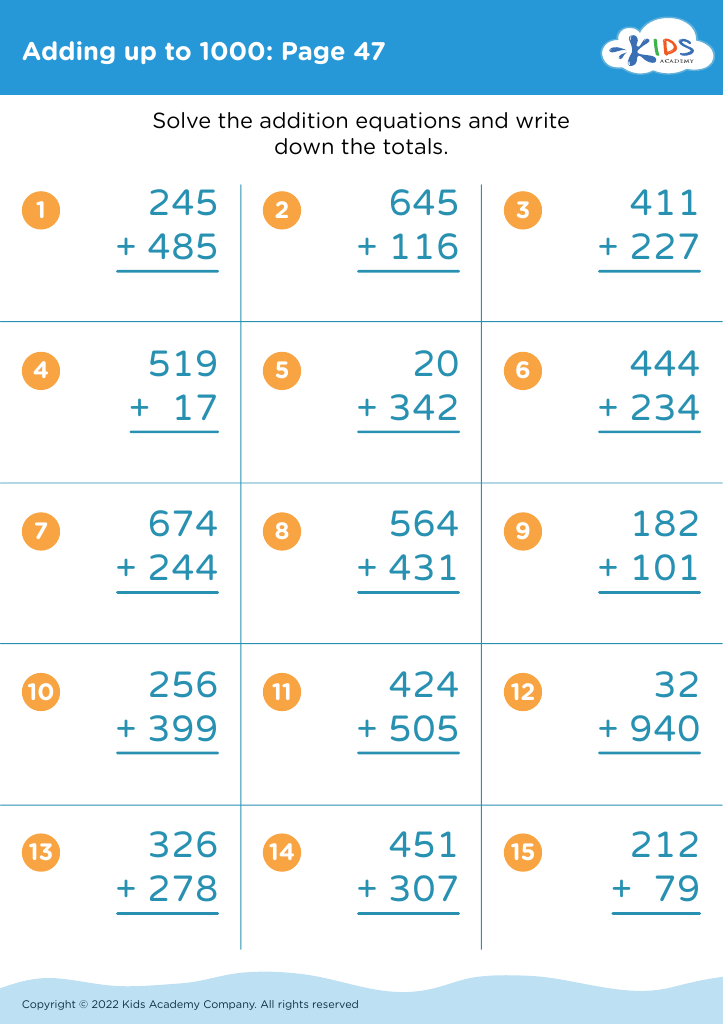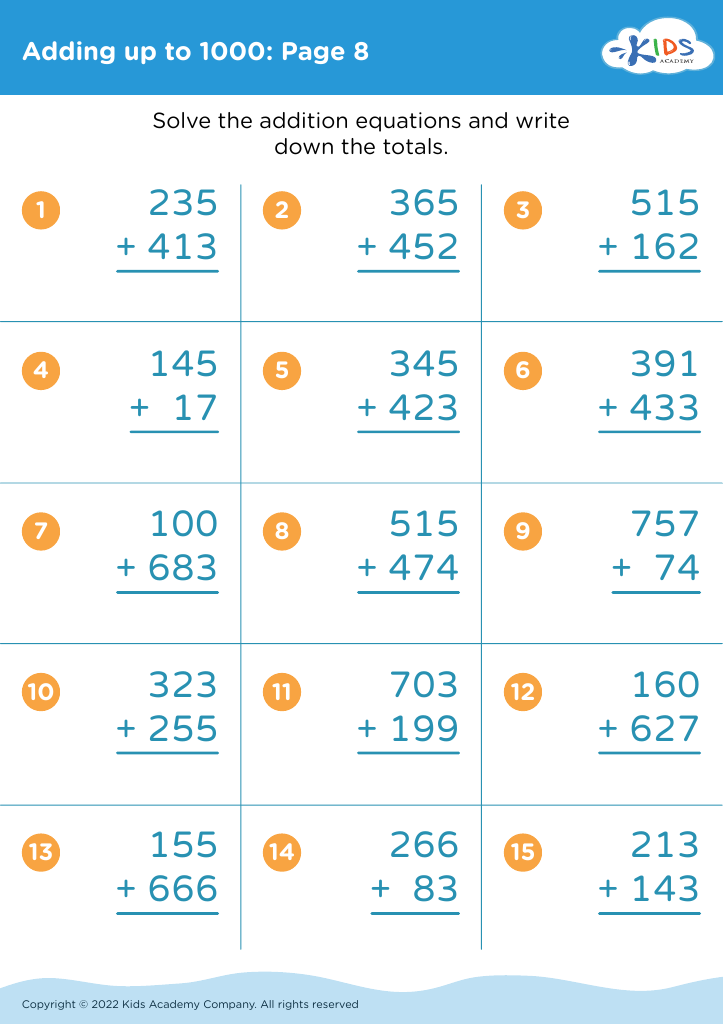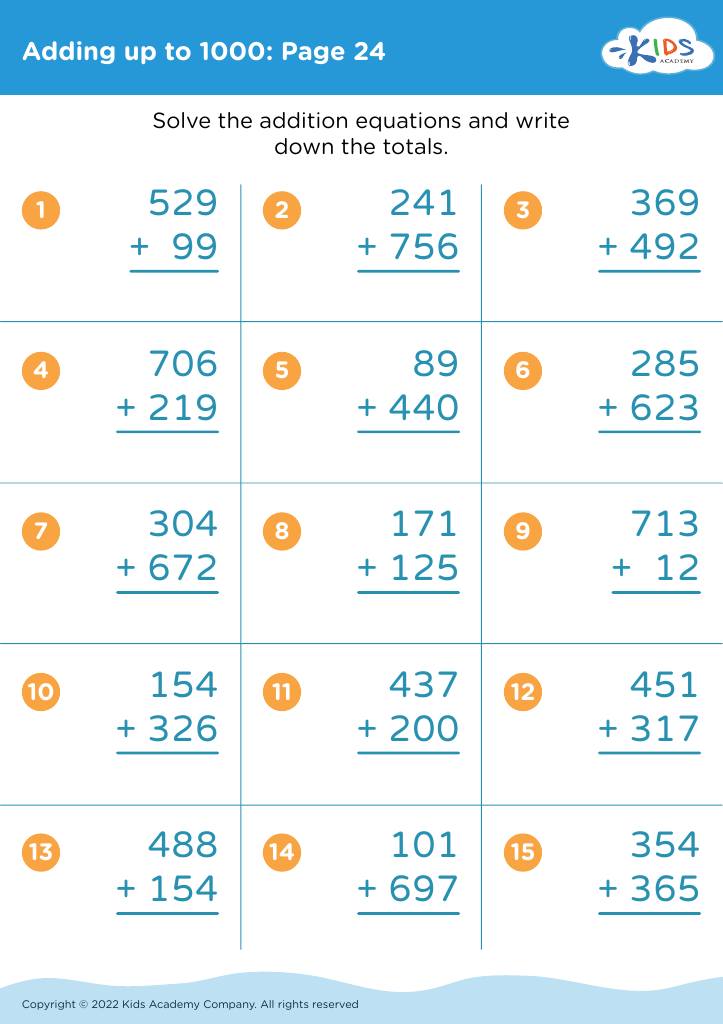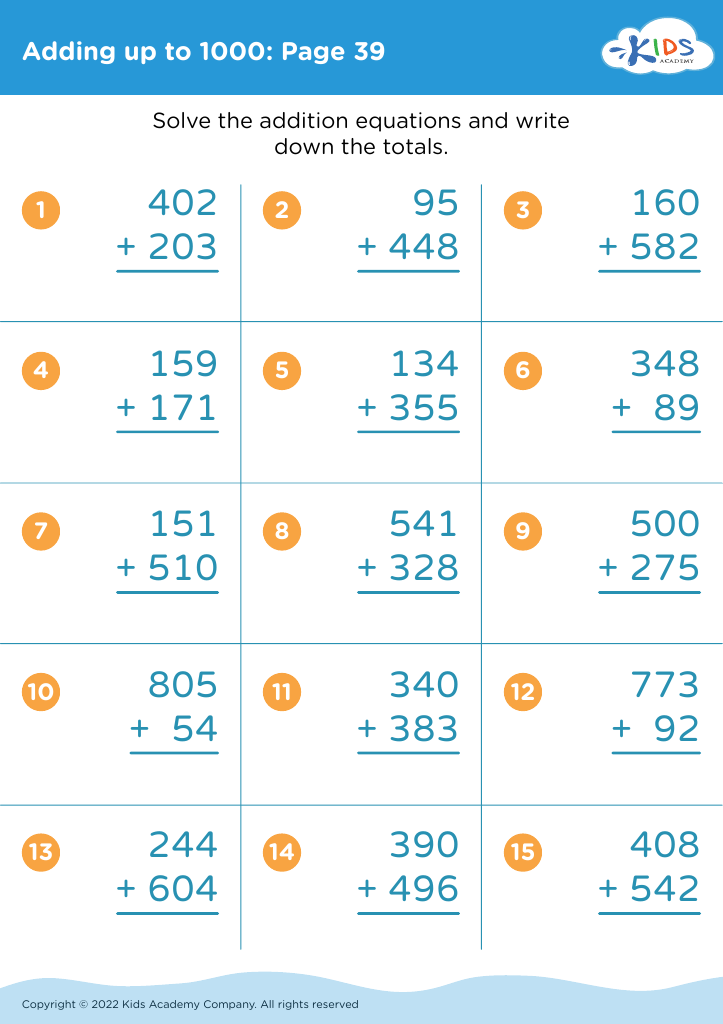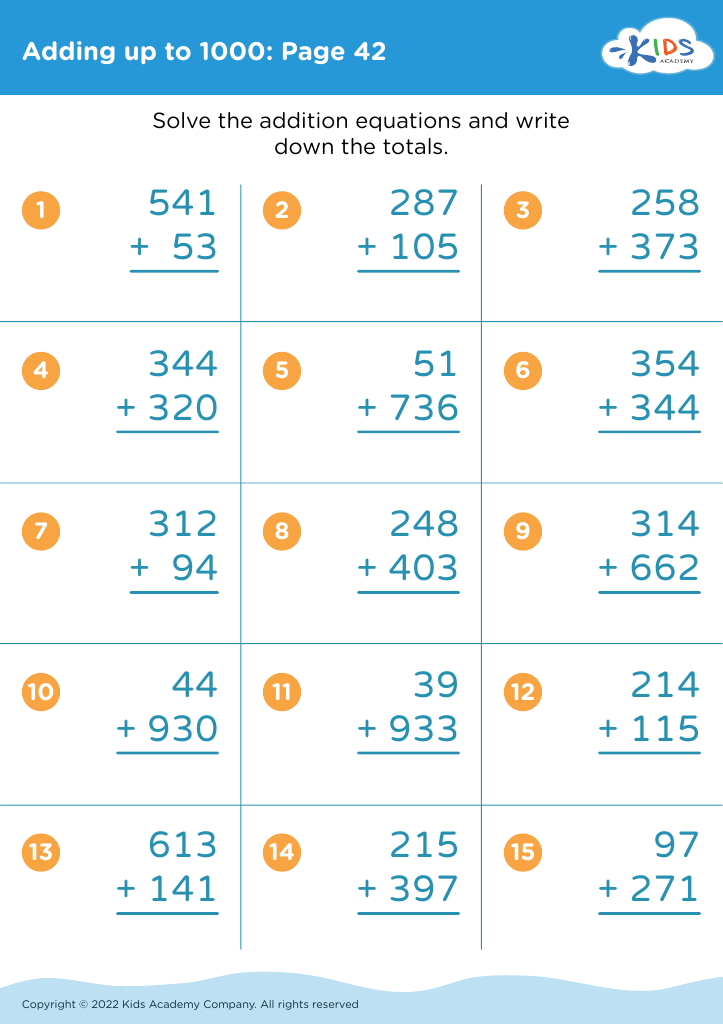Counting skills Adding up to 1000 Misc Worksheets for Ages 3-8
8 filtered results
-
From - To
Discover a treasure trove of engaging worksheets designed to enhance counting skills for children aged 3 to 8! Our "Counting Skills Adding Up to 1000" assortment includes a variety of fun, interactive activities aimed at reinforcing foundational math concepts. From simple counting exercises to mindful problem-solving tasks, these resources are perfect for fostering a love for numbers while building essential skills. Each worksheet encourages creativity and critical thinking, making math enjoyable for young learners. Utilize these printable materials in the classroom or at home to support your child's mathematical journey as they confidently master the concept of counting and addition!
Counting skills are foundational for young learners, particularly for ages 3-8, as they form the basis for more complex mathematical concepts. Mastering counting and understanding numbers up to 1000 enables children to develop logical thinking, problem-solving abilities, and number sense which are essential for their overall cognitive growth.
These skills foster confidence in academic settings and everyday life, as children begin to recognize and categorize quantities, understand patterns, and perform basic operations such as addition and subtraction. Learning to add up to 1000 encourages children to practice their arithmetic in real-life scenarios, bolstering their engagement and making math relevant and enjoyable.
Moreover, by nurturing early counting skills, parents and teachers can help children build a positive attitude towards math. Strong early understanding can reverse any fears or negative sentiments towards the subject, setting the tone for complex future math challenges.
Lastly, consistent practice with counting and adding engages multiple areas of development, including language by increasing vocabulary related to numbers, and fine motor skills through hands-on activities like counting blocks or drawing. Therefore, prioritizing counting skills helps widescale learning, combining cognitive development, day-to-day application, and emotional well-being, making it crucial for children's success.
